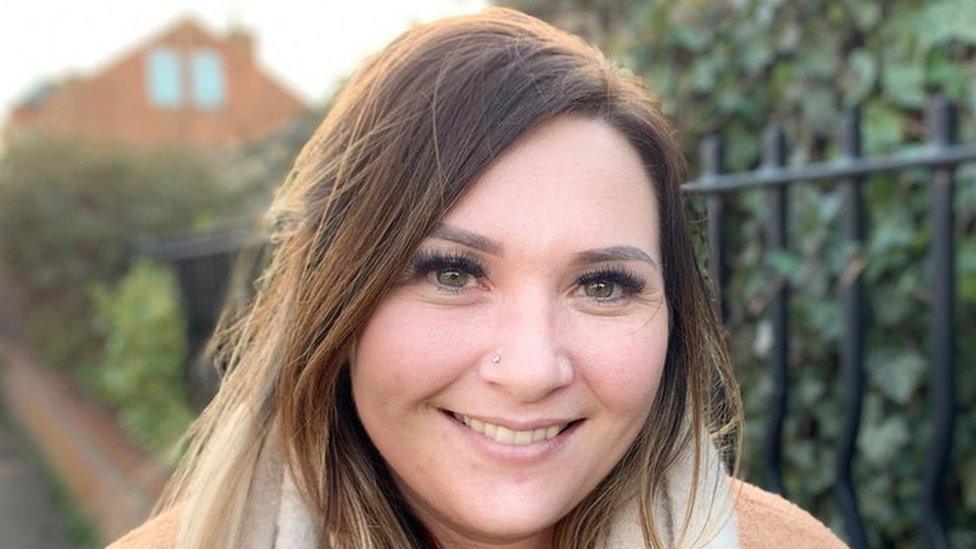School pay branded prehistoric by striking teachers
- Published
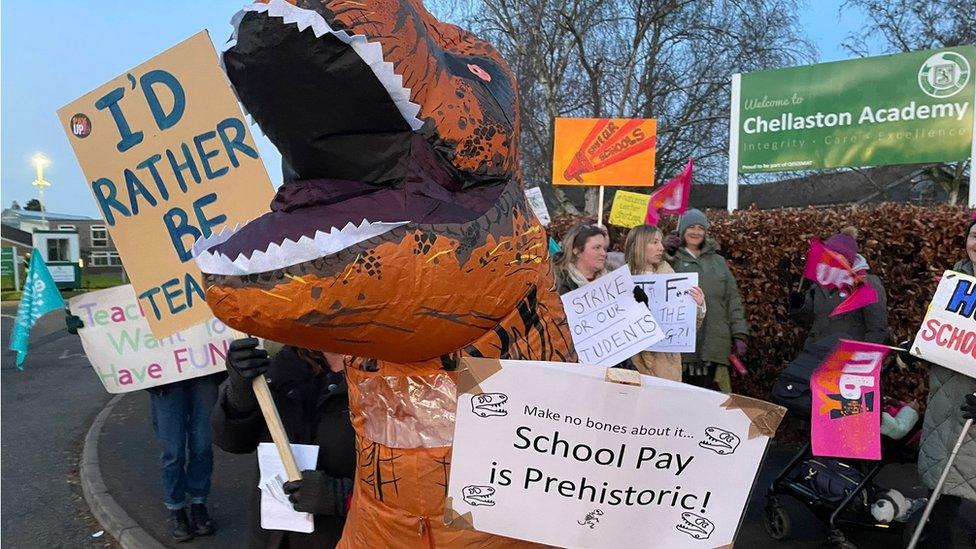
Dinosaur-clad Daniel Holme - a geography and politics teacher - was one of many teachers on the picket line
Teachers across the East Midlands have begun strike action over a dispute on pay and conditions.
They are among hundreds of thousands of workers taking part in what is expected to be the biggest day of industrial action in more than a decade.
More than 100,000 teachers in England and Wales could join the National Education Union's strike over pay.
Teachers in Leicestershire, Derbyshire and Nottinghamshire have been telling the BBC why they are on the picket line.

Derbyshire
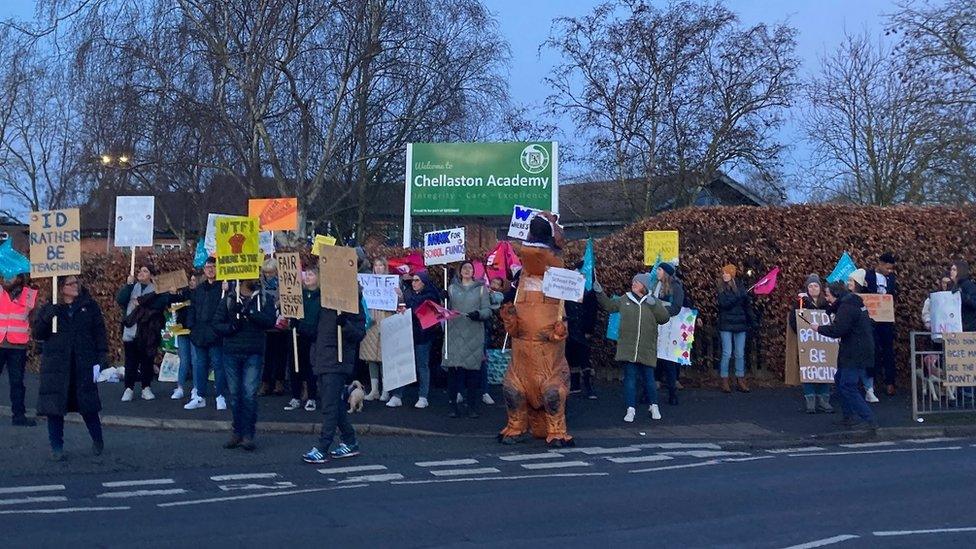
Teachers at Chellaston Academy in Derby on the picket line this morning
Teachers at Chellaston Academy in Derby gathered outside their school on Wednesday morning.
Daniel Holme, a geography and politics teacher, came to the picket line dressed as a dinosaur with a sign saying school pay was "prehistoric".
Ian Walters, a geography teacher for 19 years, said an unfunded pay rise meant what they could provide for young people in schools "is being reduced year on year".
He said the school was resorting to supply teachers "left right and centre because we've got a recruitment and retention crisis".
"We're losing maths teachers, we can't get physics teachers. The impact of that is massively affecting our young people," he said.
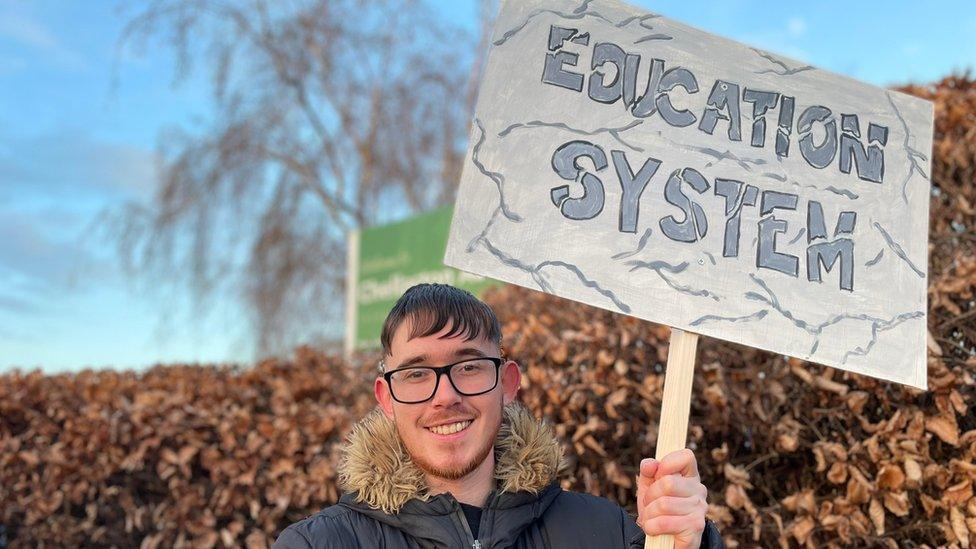
Connor Kelly said teachers were being overworked
Connor Kelly, a psychology and sociology teacher at Chellaston Academy, has been in the profession for four years.
He said he walked out in protest at smaller budgets and longer hours. He also said he was having to teach ICT due to a shortage of staff.
"You can't simply do the job in the hours that we've got available - many other sectors would get overtime but we don't," he said.
"It's getting to the point that we're not only out here for the teachers, we're out here for the support staff as well who get tiny salaries to the point where they could earn more in a supermarket."
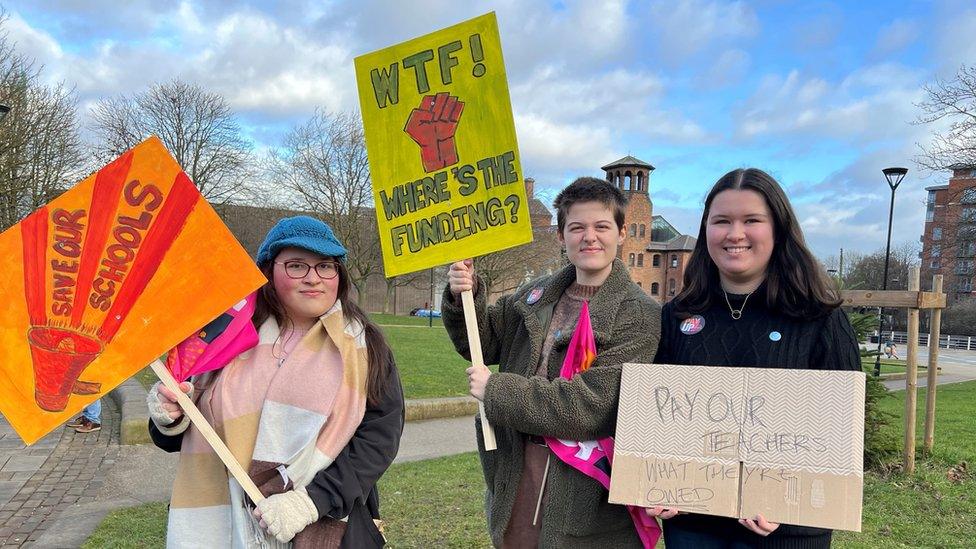
Students from Chellaston Academy were also on the picket line supporting their teachers

Nottinghamshire
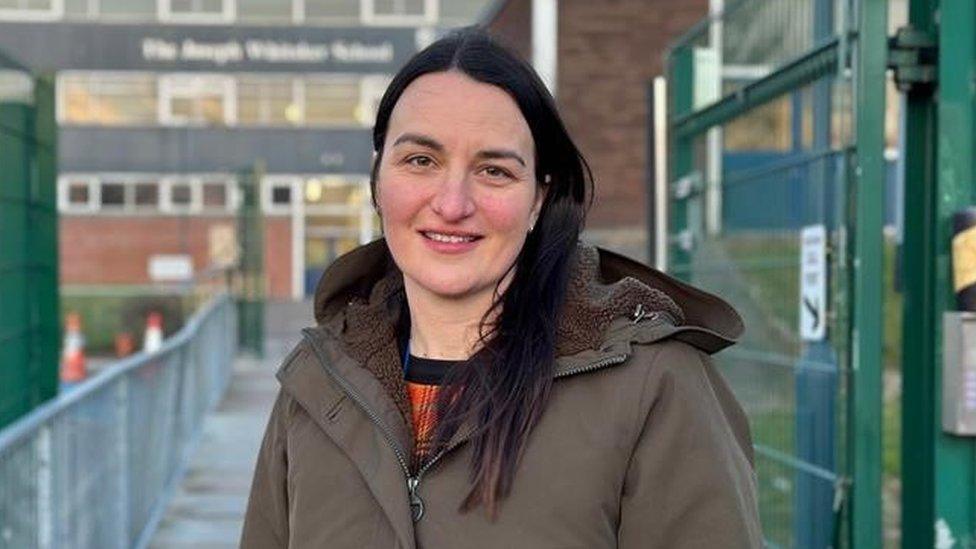
Carey Ayers is head teacher of the Joseph Whitaker School in Rainworth near Mansfield
Carey Ayers, head teacher of the Joseph Whitaker School in Rainworth near Mansfield, said staff had thought long and hard about the decision to go on strike.
"If the government are listening, [the staff] have not taken this action lightly," she said.
"I know that every single member of staff in school cares very deeply about the children, not just the children today, but the children that will come through this school in the future and across the country.
"They have not done this lightly and said they will sacrifice their wages today to make their voices heard."
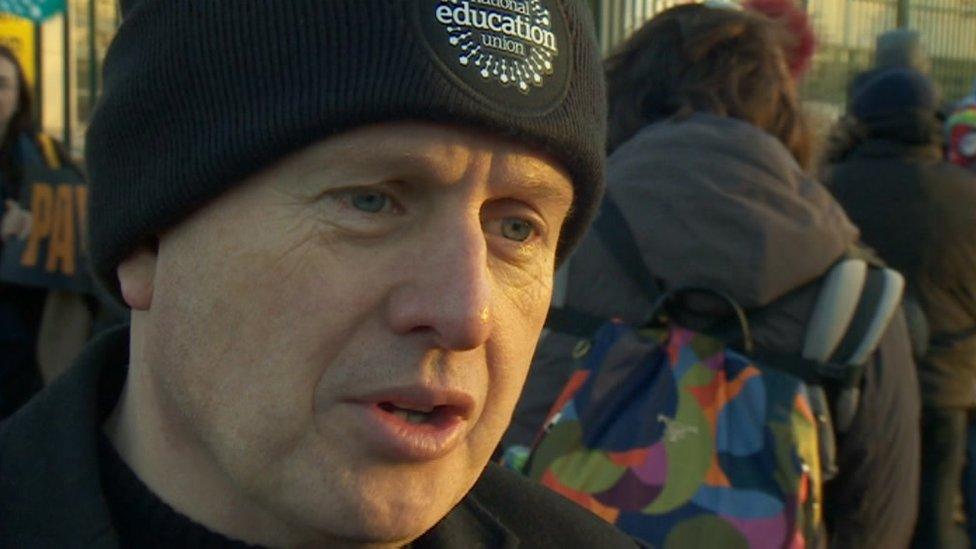
Nick Raine, NEU's senior regional officer, joined the picket line outside Nottingham Academy
Nick Raine, senior regional officer from NEU, speaking outside Nottingham Academy's Greenwood Campus, said he believed the vast majority of parents were on the side of teachers going on strike.
"We're striking for the future of your children, we're striking so your children can get better working conditions and we're very concerned about funding in schools," he said.
"We're on strike today speaking to parents - the overwhelming majority of whom support us - saying enough is enough and education needs funding properly for the future of our children."
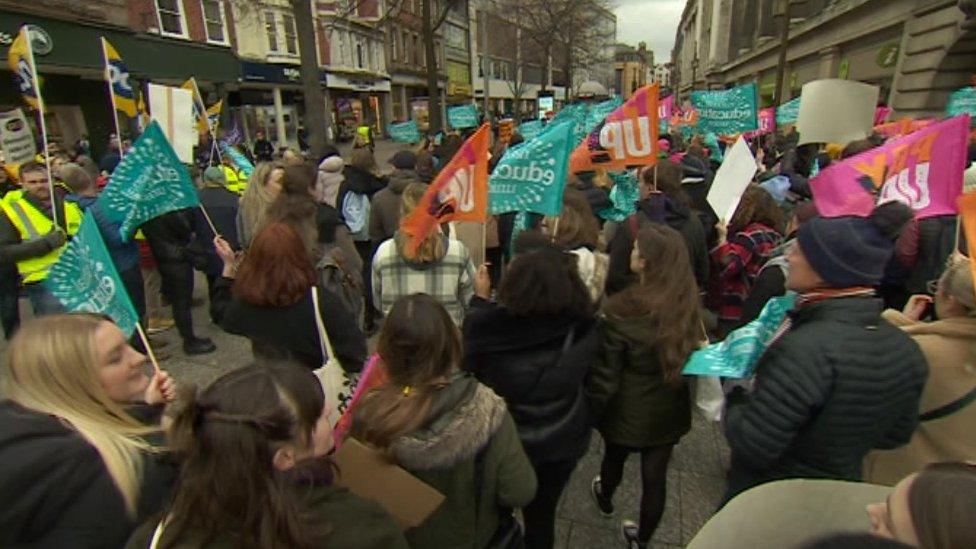
Hundreds gathered in Nottingham's Old Market Square for a rally
Hundreds of people represented by public sector unions like the NEU, the Public and Commercial Services Union (PCS), Unite and Unison, gathered in Nottingham's Old Market Square for a rally.
Teachers were joined by train drivers, university lecturers and civil servants on a march from Broad Marsh bus station to the end point in the city's central square to demand better pay and conditions.
Other rallies organised by the Trades' Union Council (TUC) were also held in Derby's Cathedral Green and Leicester's Jubilee Square.

Leicestershire
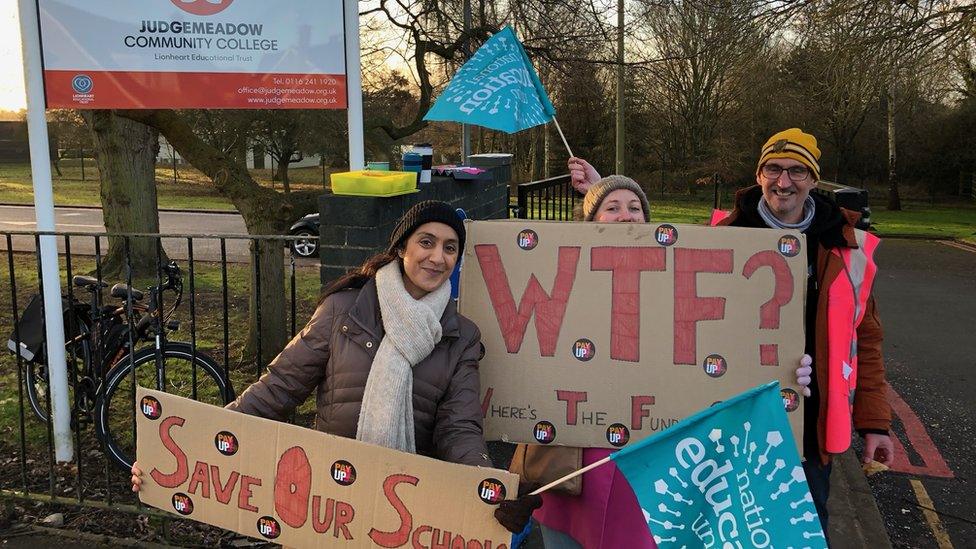
Teachers Sheetal Mistry, Kirsty Fairbrother and Simon Robinson outside Judgemeadow Community College
Teachers were also on the picket line outside Judgemeadow Community College in Evington, Leicester.
Science teacher and union organiser Simon Robinson said the offer on the table amounted to a 7% pay cut in real terms.
"Our message to parents is many of your children are being taught by unqualified staff and teachers are leaving the profession every year," he said.
"We have huge concerns about the future of education for students."
What has the government said?
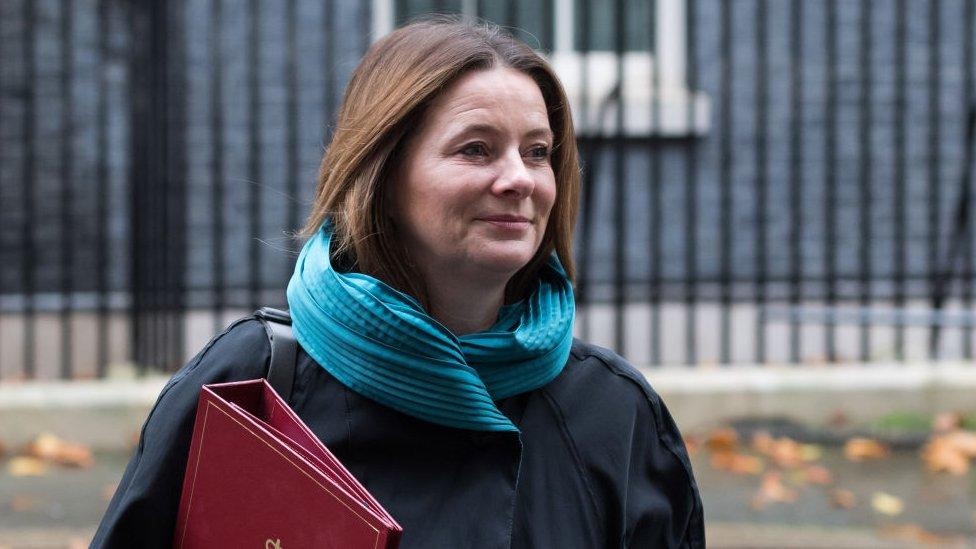
Gillian Keegan says talks with the union are ongoing
The education secretary wrote to teachers and school leaders on Tuesday night, saying she was still listening and continuing to meet with union leaders.
In the letter, Gillian Keegan said: "We are working through a range of issues which includes pay, workload, flexible working, behaviour and much more."

Follow BBC East Midlands on Facebook, external, Twitter, external, or Instagram, external. Send your story ideas to eastmidsnews@bbc.co.uk, external.
Related topics
- Published1 February 2023
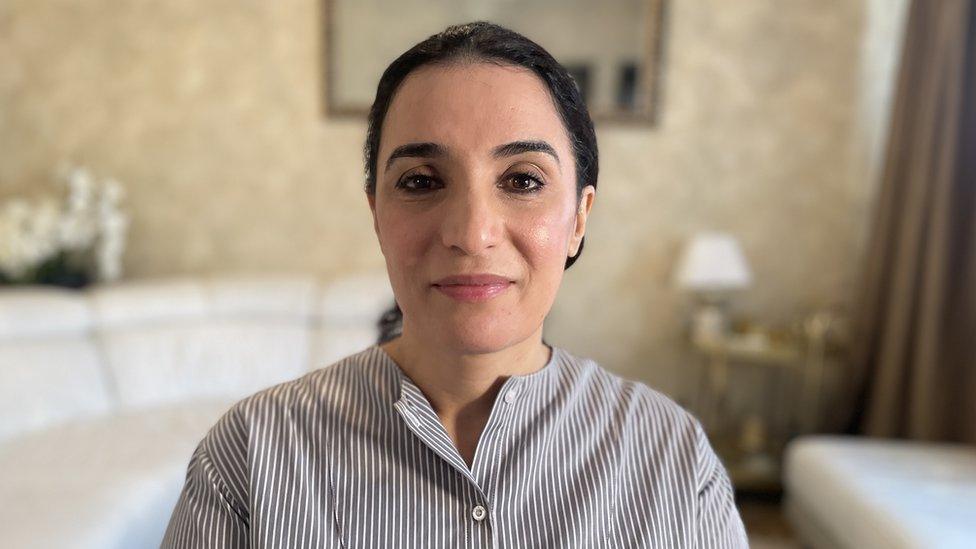
- Published1 February 2023
